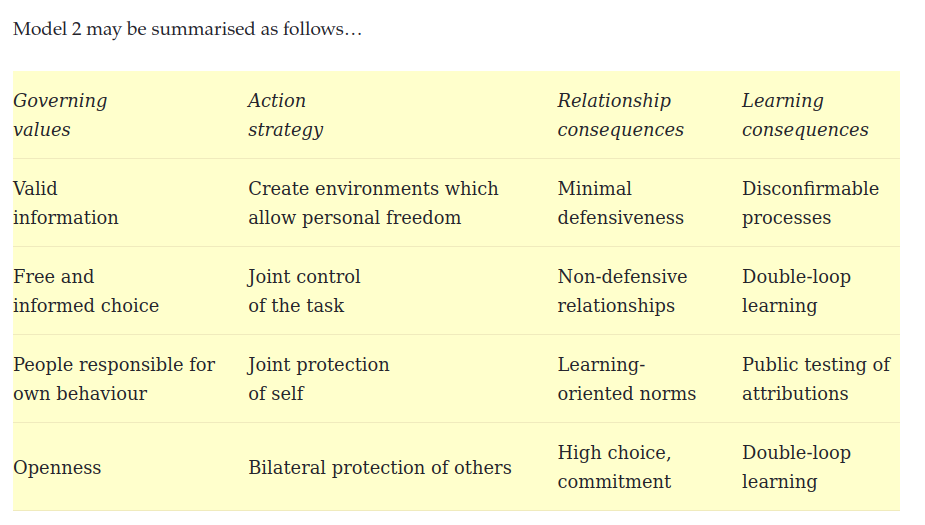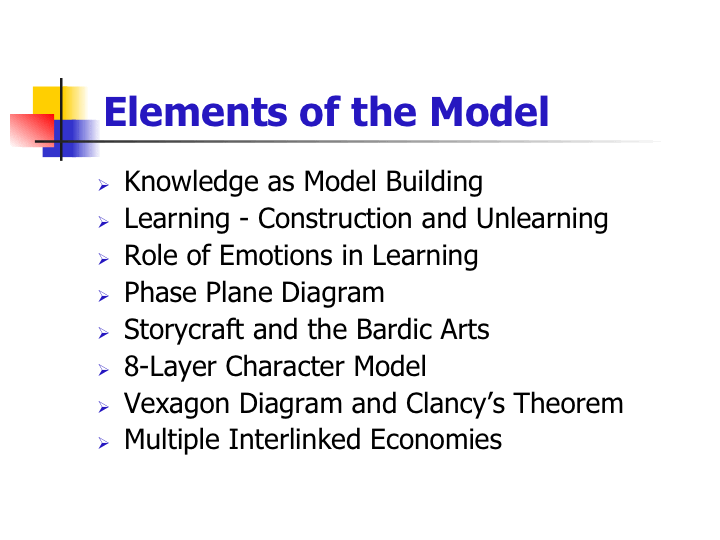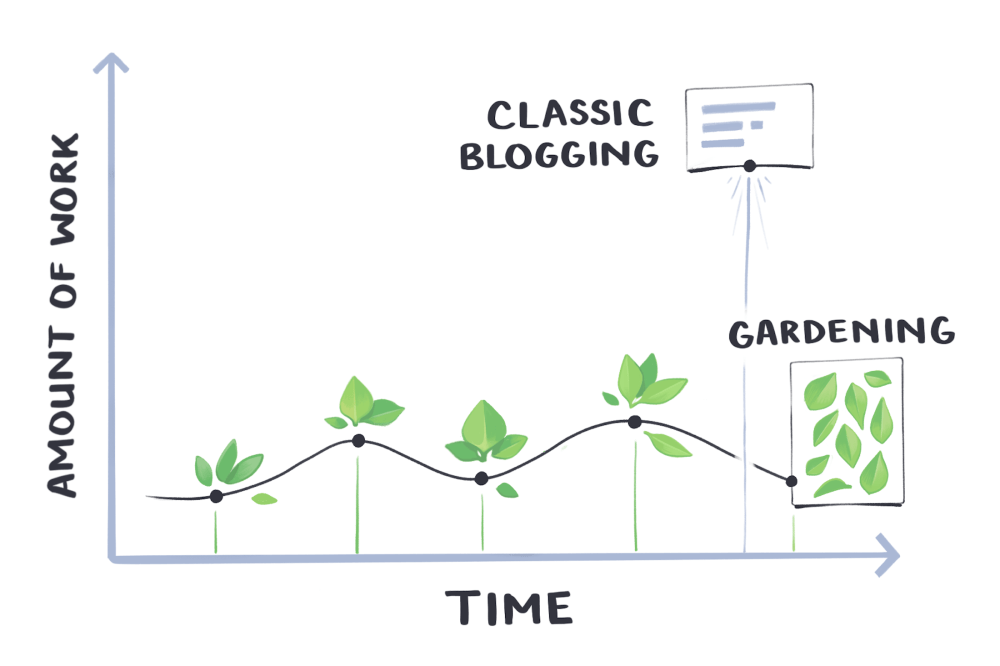lakoff
https://framelab.substack.com/
Read More lakoffgood stuff to read
https://framelab.substack.com/
Read More lakoffGeorge Smiley Paul A. Enzinger what do you think about national sovereignties and how subnationals like us are forced to live under the laws of whatever nation claimed us at birth while a few supranational organizations operating outside the laws of all nations fight each other for control of humanity’s lines of supply? Of course…
Read More George Smiley Post thumbnail
Post thumbnail
Models 1 and 2 Source: Argyris and Schon: elements of their models Models 1 and 2 We mentioned earlier a number of possible governing values, including “maximise winning and minimise losing” and “minimise expressing negative feelings”. Some of these governing values tend to cluster together to form what might be called world views. Argyris…
Read More Argyris and Schon: elements of their modelsSummary of The Incerto by Nassim Taleb
Read More Summary of The Incerto by Nassim Taleb Post thumbnail
Post thumbnail
https://sites.google.com/site/barrykort/home/cognition-affect-and-learning
Read More Barry Kort Post thumbnail
Post thumbnail
A newly revived philosophy for publishing personal knowledge on the web
Read More A Brief History & Ethos of the Digital Garden Post thumbnail
Post thumbnail
Charles Eisenstein
Apr 21, 2022
“You’ve probably heard some of the fuss around central bank digital currencies (CBDCs). This article is neither a fiery condemnation (that would be too easy) nor a technical explanation, nor anything in between. I will briefly explain what they are, describe their attractions and dangers, and then explore some seldom-discussed foundational questions.”
Read More Central Bank Digital CurrenciesMetaphors can kill. The discourse over whether to go to war in the gulf was a panorama of metaphor. Secretary of State Baker saw Saddam Hussein as “sitting on our economic lifeline.” President Bush portrayed him as having a “stranglehold” on our economy. General Schwarzkopf characterized the occupation of Kuwait as a “rape” that was ongoing. The President said that the US was in the gulf to “protect freedom, protect our future, and protect the innocent”, and that we had to “push Saddam Hussein back.” Saddam Hussein was painted as a Hitler. It is vital, literally vital, to understand just what role metaphorical thought played in bringing us in this war.
Read More Metaphor and war: LakoffNow, for the first time, Antonia is taking her extensive knowledge and making it available to the whole community. Her hope is to help us develop mastery of critical framing and messaging skills and to encourage a productive conversation about innovation and increasing community participation in the political campaign process.
Read More Antonia Scatton Post thumbnail
Post thumbnail
One of my (Gene Sharpe) major concerns for many years has been how people
could prevent and destroy dictatorships. This has been nurtured in
part because of a belief that human beings should not be dominated
and destroyed by such regimes.
“”In recent years the P2P Foundation has become the dominion of a single man: its founder Michel Bauwens. Despite its stated commitment to the “commons”, under Bauwens’ direction the P2P Foundation has increasingly come to represent an understanding of the commons as a place of white privilege and punitive male fragility.”
Read More Michel BauwensSource: P2P Lab ← research collective The P2P Lab is an interdisciplinary research collective focused on the commons. Our aim is to: strive for integrative insights on the open-source technologies and practices; write, edit and publish articles, reports, and books on a diverse range of topics we investigate; organise events for reflection and action…
Read More P2P Lab ← research collectiveHumans are programmed to think we’re right at all costs. Fighting that instinct will set you free. Source: How to Get Better at Admitting You’re Wrong – The Atlantic And so much more How to Build a Life A column about pointing yourself toward happiness by Arthur C. Brooks
Read More How to Get Better at Admitting You’re WrongBUT – in order to capture the attention of the public, we have to find a way to provoke the debates we should be having, and that means figuring out how to frame our issues, how to push the right buttons with hope instead of hate and with mutual support instead of fear. We can’t repeat the process of what the corporate/religious right-wing has done over the past fifty years, we have to reverse it.
-Antonia Scatton-
Read More Reframing America | Antonia Scatton | SubstackResilience: what do we most value that we want to keep, and how?
Relinquishment: what do we need to let go of so as not to make matters worse?
Restoration: what could we bring back to help us with these difficult times?
Reconciliation: with what and whom shall we make peace as we awaken to our mutual mortality?
Each solution reduces greenhouse gases by avoiding emissions and/or by sequestering carbon dioxide already in the atmosphere. Source: Solutions | Project Drawdown
Read More Solutions | Project DrawdownAn overview of the basics of metaphorical thought and language from the perspective
of Neurocognition, the integrated interdisciplinary study of how conceptual thought and
language work in the brain. The paper outlines a theory of metaphor circuitry and
discusses how everyday reason makes use of embodied metaphor
she is in the style of George Lafoff and works from the frame of Cognitive Metaphor Theory.
Read More Antonia is reframing AmericaA society based on natural ecology might seem like a far-off utopia—yet communities everywhere are already creating it.
Read More What an Ecological Civilization Looks Like:We are told that states and the dominion they impose, however dysfunctional and destructive they may be, are an inevitable and irreplaceable form of human organisation. Bookchin and those he has inspired help us to challenge this claim.
Read More Participatory Democracyhttps://www.theguardian.com/commentisfree/2017/apr/12/doughnut-growth-economics-book-economic-model In Doughnut Economics: Seven Ways to Think Like a 21st-Century Economist, Kate Raworth of Oxford University’s Environmental Change Institute reminds us that economic growth was not, at first, intended to signify wellbeing. Simon Kuznets, who standardised the measurement of growth, warned: “The welfare of a nation can scarcely be inferred from a measure of…
Read More Doughnut EconomicsHow is it possible to own land? I find it remarkable that this basic question is so seldom asked. The current pattern of ownership and control of land lies at the heart of many of our biggest dysfunctions: the collapse of wildlife and ecosystems, the exclusion and marginalization of so many people, the lack of housing in many cities—indeed, in many parts of the world—the lack of public space in cities, our exclusion from the countryside.
Read More Private Sufficiency, Public LuxuryFood Not Bombs is a loose-knit group of independent collectives, sharing free vegan and vegetarian food with others. Food Not Bombs’ ideology is that myriad corporate and government priorities are skewed to allow hunger to persist in the midst of abundance. To demonstrate this and to reduce costs, a large amount of the food served by the group is surplus food from grocery stores, bakeries and markets that would otherwise go to waste, or occasionally has already been thrown away. This group exhibits a form of franchise activism.
Read More Food Not Bombs – WikipediaJustin Murphy’s work has appeared in IEEE Intelligent Systems, Foreign Affairs, International Studies Quarterly, and other peer-reviewed journals.
He left academia in 2019 to write and teach on the internet full-time.
Murphy publishes the Other Life newsletter and podcast from his home in Austin, Texas.
Read More Justin MurphyMy (Danieal Whal) personal interest in sustainable community design as the primary scale of participation in the creation of regenerative cultures led me to spend a good part of the last 15 years investigating ecovillages as test fields for sustainable community design.
Read More EcovillagesKeith McHenry is done with the left-right divide. It’s now the humans versus the deadly robotic corporate state. Adopt the ideals of anarchism instead.
Read More I Am Done With The Left-Right Divide • Zero-Sum“We use the phrase Commons Transition to describe a series of ongoing actions that reflect the needs and creative input of civil society. What are the components of such a transition, and how do they turn into concrete actions?”
-Commons Transition Primer-
Stacco lives, breathes, teaches and writes on the Commons, P2P politics and economics, open culture, post-growth futures, Platform and Open Cooperativism, decentralised governance, blockchain and more as part of DisCO.coop, Commons Transition and Guerrilla Translation.
Read More Stacco Troncosotalks about “Orwellian Speech” Make no mistake George is Evil 🙂 https://en.wikipedia.org/wiki/George_Lakoff Words that work Local Copy Don’t Think Like an Elephant
Read More George LakoffLearn how mutual credit could challenge the current banking system with its focus on money-less trade and exchange within local communities.
Read More Sustainable living info, courses, products & services | lowimpact.orgRalph Haulk
Roy Hanfling Howard Bloom, in the book “Global Brain” lays it out well. What eukaryotes did was to absorb other bacteria and use them for more complex purposes. The bacteria absorbed into the eukaryote each served a useful function, with mitochondria being the “energizer” of the cells. Basically colonies formed to serve a more centralized purpose, and began replicating.
Instead of falling for false ideas about nature, why not pay attention to what we actually know about human nature and the behaviour of our near relatives? The message from biology is that we are group animals: intensely social, interested in fairness and cooperative enough to have taken over the world. Our great strength is precisely our ability to overcome competition. Why not design society such that this strength is expressed at every level?
Read More The flaws in the competition-is-good-for-you logicThe prosperity of the 21st century will be determined by the sustainable management of the global commons. This is a new challenge for the future of our economic system. Even if everybody benefits from a sustainable usage of global commons, there are incentives for free-riding. With every nation thinking this way, individual shrewdness turns into collective stupidity. Some form of cooperation will be a survival condition for humanity.
Read More The Atmosphere as a Global CommonsTo be GOVERNED is to be watched, inspected, spied upon, directed, law-driven, numbered, regulated, enrolled, indoctrinated, preached at, controlled, checked, estimated, valued, censured, commanded, by creatures who have neither the right nor the wisdom nor the virtue to do so
Read More Pierre-Joseph ProudhonWhether we’re talking about the erasure of history or the undoing of scientific knowledge, agnotology is a tool of oppression by the powerful
Read More “agnotology is about preventing knowingWhat is peer production and commons economics? More importantly, how can they help bring about a thriving economy that work for people and planet?
Written by Michel Bauwens,
Read More 10 Ways to Accelerate the Peer-to-Peer and Commons EconomyFounded in 1995, Stephen’s Web is best described as a digital research laboratory for innovation in the use of online media in education. More than just a site about online learning, it is intended to demonstrate new directions in the field for practitioners and enthusiasts.
Read More Stephen’s Web ~ Personal Learning Environments ~ Stephen DownesOnline learning, new media, connectivism, MOOCs, personal learning environments, new literacy, and more from Stephen Downes Source: My eBooks ~ Stephen Downes
Read More My eBooks ~ Stephen DownesMike Caulfield’s latest web incarnation. Networked Learning, Open Education, and Online Digital Literacy Source: Hapgood | Mike Caulfield’s latest web incarnation. Networked Learning, Open Education, and Online Digital Literacy He has a blog roll even 🙂 he does ping backs he has
Read More Hapgood | Mike Caulfield’s latest web incarnation. Networked Learning, Open Education, and Online Digital LiteracyAt the 2015 Digital Learning Research Network, Mike Caufield delivered a keynote on The Garden and the Stream: a Technopastoral. It later becomes a hefty essay that lays the foundations for our current understanding of the term. If anyone should be considered the original source of digital gardening, it’s Caufield. They are the first to…
Read More Mike Caufield delivered a keynote on The Garden and the StreamMichel Bauwens, Vasilis Kostakis and Alex Pazaitis
Read More P2P | Peer to Peer: A commons Manifesto| Facebook Post thumbnail
Post thumbnail
Maggie Appleton joins Henry to discuss open source as a gift economy (versus a market economy
Read More Maggie Appleton on Open Source as a Gift Economy – Maintainers AnonymousI think that P2P interaction, in the absence of a profit motive, is often motivated by prosocial motivations or virtue, somewhere in the culture wars virtue has been identified with hypocrisy, this is a misdirection Commons-based Peer Production and VirtueYOCHAI BENKLER Yale Law SchoolandHELEN NISSENBAUM Culture & Communication, New York University jopp_235.qxd – Commons-Based Peer…
Read More Commons-based Peer Production and VirtueIt is the primary “home” site of Forrest Landry, contains (mostly) his writings, audio content, some code and music, and other things that he (and you) might find to be of general interest. Most of the content here is either his own work or is directly connected to work that he has done (the few exceptions will be noted as needed in situ).
Read More Forrest Landry My Famous Love BlogSource: Saving the Socials: What If We Tried a Multipronged Approach? | Platform Cooperativism Consortium My interest is less in legislative and systems change and more in how can I save my socials I can: manage interoperability using this WordPress site and by choosing platforms Participate in community and cooperatives including Mastodon and specifically Social.coop
Read More Saving the Socials: What If We Tried a Multipronged Approach? | Platform Cooperativism ConsortiumCollaborative consumption is the set of those resource circulation systems in which consumers both “obtain” and “provide”, temporarily or permanently, valuable resources or services through direct interaction with other consumers or through a mediator. It is sometimes paired with the concept of the “sharing economy”.[1][2] Collaborative consumption is not new; it has always existed (e.g. in the form of flea markets, swap meets, garage sales, car boot sales, and second-hand shops).[3][4]
In 2011, collaborative consumption was named one of Time magazine’s 10 ideas that will change the world.[5]
Read More Collaborative consumption – WikipediaJust in case you were still wondering… Source: Dan Gillmor – Just in case you were still wondering…
Read More Dan Gillmor – Just in case you were still wondering…Source: Professionalism/Pekka Himanen and The Hacker Ethic – Wikibooks, open books for an open world
Read More Pekka Himanen and The Hacker Ethic Wikibooks, Open books for an open world